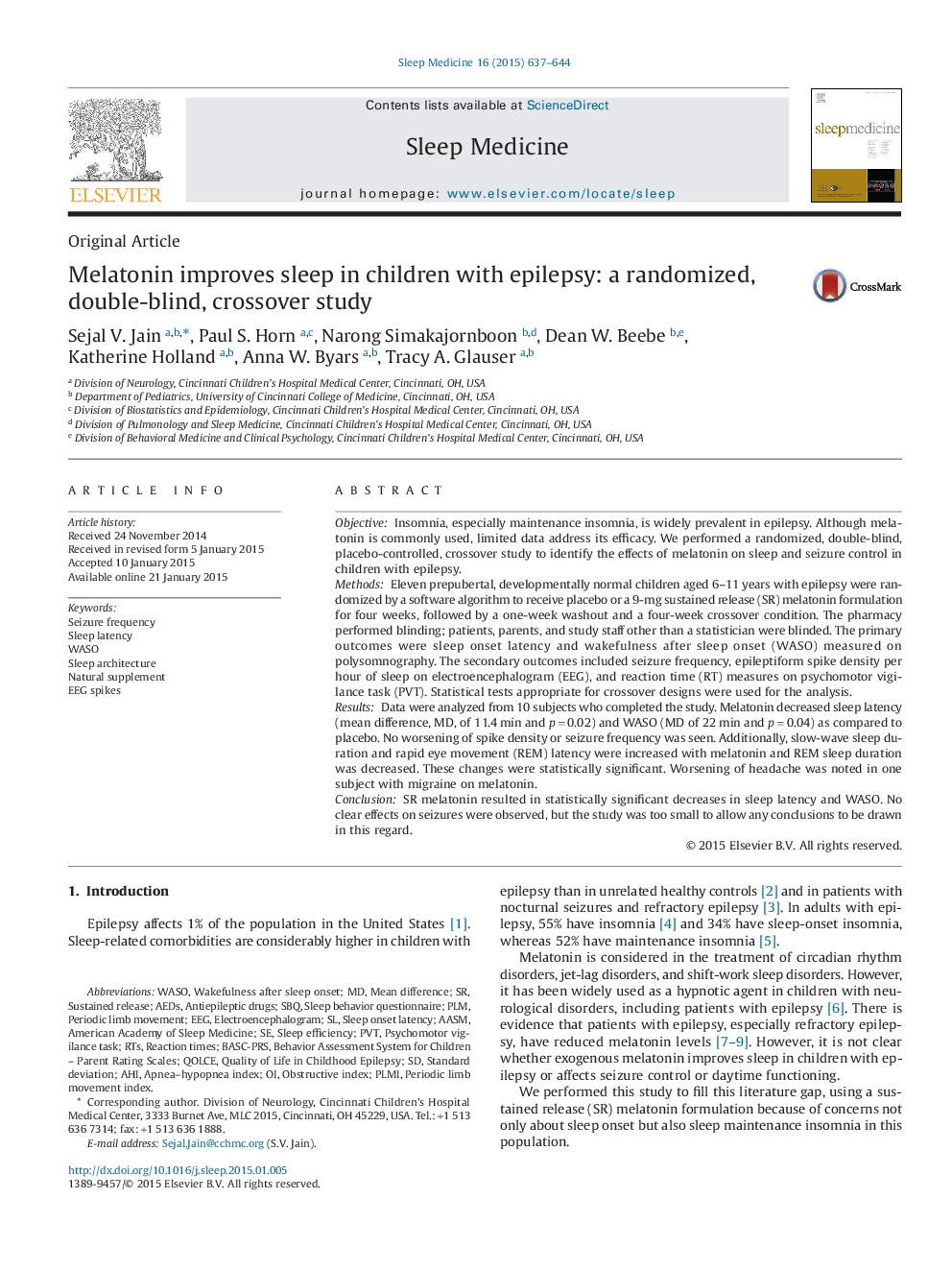| Article ID | Journal | Published Year | Pages | File Type |
|---|---|---|---|---|
| 3176049 | Sleep Medicine | 2015 | 8 Pages |
•We performed a Class I study using melatonin as a hypnotic agent in children with epilepsy.•In the study, melatonin improved sleep latency and wakefulness after sleep onset.•No significant increase was seen in seizure frequency or spike density; however, the study was too small to allow any conclusions to be drawn in this regard.•Increased N3 and reduced rapid eye movement (REM) sleep were noted in subjects on melatonin when compared to those on placebo.
ObjectiveInsomnia, especially maintenance insomnia, is widely prevalent in epilepsy. Although melatonin is commonly used, limited data address its efficacy. We performed a randomized, double-blind, placebo-controlled, crossover study to identify the effects of melatonin on sleep and seizure control in children with epilepsy.MethodsEleven prepubertal, developmentally normal children aged 6–11 years with epilepsy were randomized by a software algorithm to receive placebo or a 9-mg sustained release (SR) melatonin formulation for four weeks, followed by a one-week washout and a four-week crossover condition. The pharmacy performed blinding; patients, parents, and study staff other than a statistician were blinded. The primary outcomes were sleep onset latency and wakefulness after sleep onset (WASO) measured on polysomnography. The secondary outcomes included seizure frequency, epileptiform spike density per hour of sleep on electroencephalogram (EEG), and reaction time (RT) measures on psychomotor vigilance task (PVT). Statistical tests appropriate for crossover designs were used for the analysis.ResultsData were analyzed from 10 subjects who completed the study. Melatonin decreased sleep latency (mean difference, MD, of 11.4 min and p = 0.02) and WASO (MD of 22 min and p = 0.04) as compared to placebo. No worsening of spike density or seizure frequency was seen. Additionally, slow-wave sleep duration and rapid eye movement (REM) latency were increased with melatonin and REM sleep duration was decreased. These changes were statistically significant. Worsening of headache was noted in one subject with migraine on melatonin.ConclusionSR melatonin resulted in statistically significant decreases in sleep latency and WASO. No clear effects on seizures were observed, but the study was too small to allow any conclusions to be drawn in this regard.
